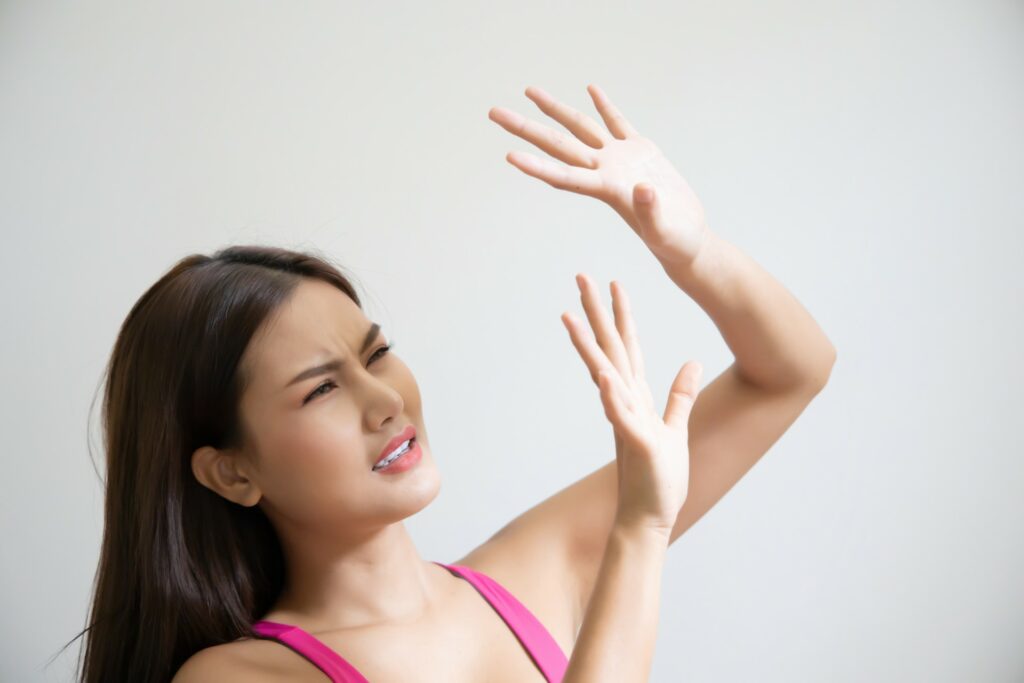July is UV Safety Month

What better time of the year to reflect on UV safety than in the throes of summer! Although sunscreen protection and skin cancer awareness deserve attention year-round, dedicating a month to focus on safety from UV radiation is valuable. Let’s use July as a month to remind people of steps individuals can easily take to protect themselves and their families from dangerous ultraviolet (UV) radiation.
Summer is the most popular time to be outdoors, at the beach, by the pool, hiking, or enjoying some other outdoor activity. Sadly, the trend of young people today to get the UV when it is highest is putting themselves in danger. Bringing awareness to the risks of exposure to these dangerous rays and ways to prevent the risks are two things that July can shed light on.
Ultraviolet Radiation Defined
Ultraviolet rays are electromagnetic and invisible, which is part of what makes them so dangerous. Even when you can’t see them, they are penetrating your skin and causing cellular damage. The higher the UV, the more damage occurs. The high-energy waves of heat can damage DNA and cause blistering and painful sunburns. The myth that people always burn before they turn tan is a misconception – nobody is immune to the increasingly harmful UV rays. Everyone should be mindful of protecting themselves as best they can.
UV radiation is comprised of UVA and UVB rays, which cause premature aging of the skin and burning. It is the UVA rays that do damage to a deeper layer of the skin, which causes skin to age prematurely and become wrinkled. IVB, although shorter, causes severe sunburn. Both types of rays are harmful to the skin and may increase the chances of getting skin cancer.
The Dangers of UV Exposure
Beyond painful sunburn, UV rays are one of the known causes of skin cancer. More than 9,500 people in the United States are diagnosed each day with skin cancer, according to the American Academy of Dermatology. Even a few minutes each day in the sun adds up the damage every time and can cause cancer and other severe skin conditions. Skin cells require proper care, and once damaged, they may lead to scarring or other diseases due to excessive sun exposure without adequate protection.
Skin Cancer Basics
The three types of skin cancer are basal cell, squamous cell, and melanoma. Basal cell carcinoma is common and makes up more than 80% of skin cancer cases. This cancer is slow-growing and is effectively treated, but earlier detection is always better! Squamous cell cancer occurs mostly on areas of the skin exposed to UV, including the neck, hands, face, and scalp. Squamous cell cancer can also be removed and treated by reputable and experienced dermatologists. Melanoma is serious, and although it accounts for less than 5 percent of skin cancer cases, it spreads quickly, is aggressive, and is the deadliest type of skin cancer.
If you have signs of skin cancer, please do not wait. Take this opportunity to see a licensed dermatologist for a skin cancer screening. Although skin cancer is highly treatable, it must be caught early to minimize its effects on the body.
Protecting Against Harmful UV Rays
Whether you have dark skin, light skin, tan regularly, or rarely go in the sun, everyone is at risk, especially in the heat of summer when UV rays are most intense. Stay in the shade when possible, and if being in the sun is necessary, wear protective clothing. When hiking, at the park, or even on the beach, long-sleeved materials can be comfortable and functional in the sun. Sunscreen is no longer optional for ANYONE! The sun’s UV rays penetrate glass and windows and are intensified when near water due to reflection. Sunscreen should be part of everyday skincare, but also applied regularly when spending time in the sun.
If possible, stay out of the sun during the peak hours, which are between 10 am and 4 pm. That may seem like an impossible ask when going out for the day with the family somewhere to stay cool, like the beach or lake, but take an umbrella and plan some activities under the shade. Water washes off and diminishes the strength and usefulness of sunscreen, so re-application is necessary. What used to be a suggestion for sunscreen and sun protection is now mandatory to keep skin healthy and reduce the risks of getting skin cancer.
Affordable Skin Cancer Screenings
Skin cancer screenings are evolving into part of the annual healthcare wellness visit, making it affordable for more individuals. If you live or work in Atlanta and have never had a skin cancer screening before, please book one today with Dr. Sherri Straughn at Buckhead Dermatology. Dr. Straughn has helped numerous clients identify, treat, and eliminate signs of skin cancer. When it comes to your skin and health, it is better to act sooner rather than later. Contact her office today.
